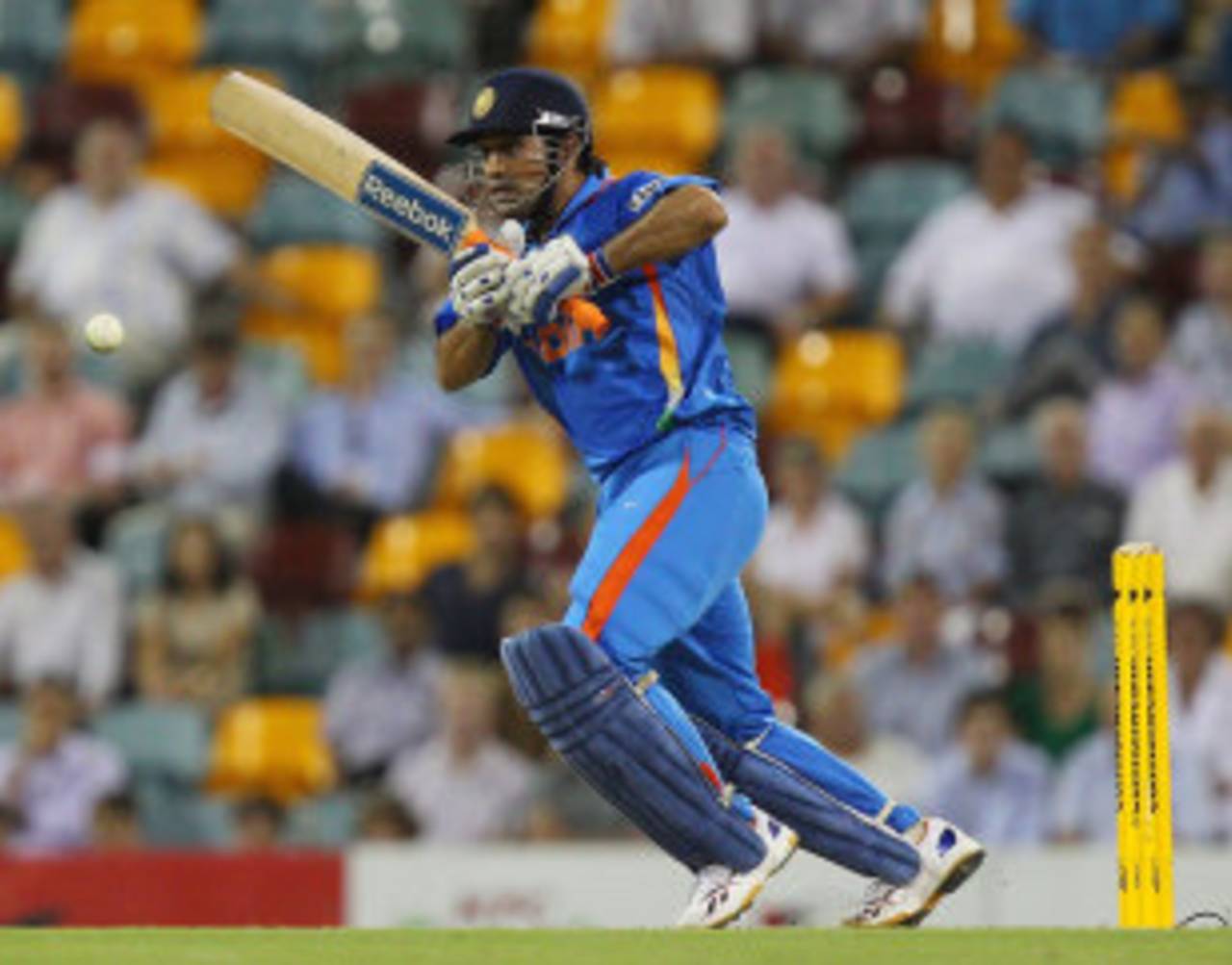Dhoni says umpires should take Mankading call
MS Dhoni has said it was, and is, unfair to put the onus on the fielding captain when an appeal for mankading is made
Sidharth Monga in Sydney
Feb 25, 2012, 5:30 AM

MS Dhoni: "Either there should be rules or there shouldn't be rules. Why are you asking the captain?" • Getty Images
MS Dhoni has said it is unfair to put the onus on the fielding captain when an appeal for mankading is made, as it was against Lahiru Thirimanne during India's match against Sri Lanka on Tuesday. R Ashwin had spotted Thirimanne leave the crease well before the ball was bowled, he ran him out, and then appealed. The umpires asked Virender Sehwag, the captain then because Dhoni wasn't playing that game, if he wanted to go ahead with the appeal, and fearing criticism Sehwag withdrew the appeal.
Dhoni questioned the existence of the rule if the captain has to be asked every time. "I feel that [unfair] is what it [the act of asking the captain] is," Dhoni said. "Either there should be rules or there shouldn't be rules. Why are you asking the captain? Why are you putting him in a position? But I think the right thing was done. Because the captain was asked, we withdrew the appeal."
Dhoni said the right thing was done because India wanted to give Thirimanne the benefit of the doubt because these rules keep changing, and it is possible that players are not abreast with all the changes. "Because what happens is too many rules are getting changed," Dhoni said. "Often what's important is to give the batsman a fair chance, like a warning, saying, 'Okay, please don't do it.'"
Sehwag, though, said that Ashwin had warned Thirimanne. "A proper warning always is, you get him out and then it's a proper warning," Dhoni said. "Nobody listens to you until you do it."
However, Dhoni showed a much better understanding of the rule than the other two captains involved in the triangular. Mahela Jayawardene said he wouldn't even have removed the bails because he wants to keep the game "nice and clean". Michael Clarke said he didn't even like mankading, before saying only persistent backing-up would force him to contemplate it after proper warning. "I'm glad that nothing has come of it," Clarke said. "It's a part of the game I don't like. I don't like the mankad rule at all. I don't think you should be able to mankad."
Dhoni, though, said he understood the rule was changed last year to keep the batsman in their crease, to prevent that unfair advantage of a head-start even before a ball is bowled. Dhoni said if any party could be accused of unfair play in this case, it was the batsman, and not the fielding side, as the convention of spirit of cricket would dictate.
"It was important to appeal," Dhoni said. "The reason being it's in the law that the batsman can't go out. Often it is put on the opposition captain. For example, on Virender Sehwag. Saying, you know, it's wrong. If it's part of the rule, it's not wrong. Of course to take the decision or not the decision is something different.
"Eventually if you are saying somebody was cheating - if I may use the word cheating, you can use some other word - in this case, then the batsman getting out is the one who is cheating, because he is not allowed to do that. So I think it was a fair thing to do. You can't always have the batsman going so far ahead because he can complete the run if it goes to short fine or point or short third, he is in a better position to complete the run. I think it was a good decision. At the end that he was not taken out by our skipper."
Edited by Siddarth Ravindran
Sidharth Monga is an assistant editor at ESPNcricinfo